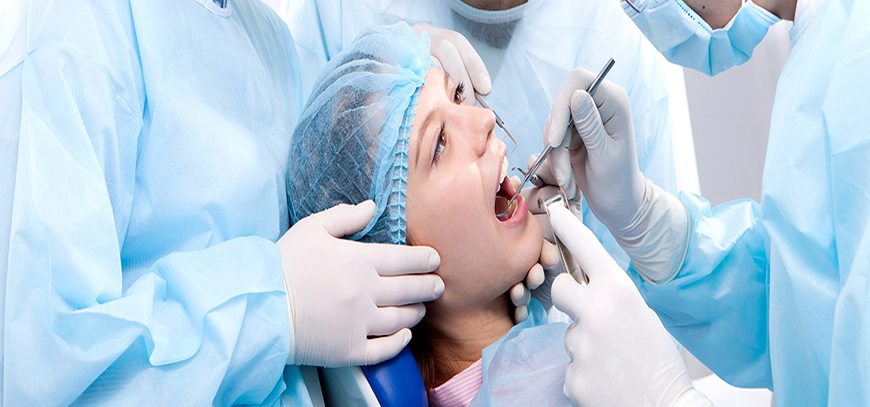Clinic Time:
- Morning: 10 A.M - 2 P.M
Evening: 4:00 P.M - 9 P.M
Contact Info
-
Phone: +91-6261474753
- Send an email
Oral Surgery

Oral surgery refers to any surgical procedure performed on your teeth, gums, jaws or other oral structures. This includes extractions, implants, gum grafts and jaw surgeries. Oral surgery is usually performed by an oral and maxillofacial surgeon or a periodontist. These are dental specialists who have advanced training in oral surgery procedures.
Why is oral surgery performed?
You could need oral surgery for a number of reasons. Your dentist might recommend it if you have:
- Extensive tooth decay
- Badly broken teeth.
- Gum disease.
- Missing teeth.
- Temporomandibular joint disorders (TMD).
- Bone loss in your jaw.
- Sleep apnea.
- Oral cancer.
- Benign oral pathology (noncancerous lumps or bumps).
What happens before oral surgery?
Your healthcare provider will perform a comprehensive evaluation to check your teeth, gums, jaw joints and surrounding structures. They will also take dental X-rays and scans to get a clear view of your teeth roots, jawbone, nerves and other important oral landmarks. Using this information, they’ll tailor a personalized treatment plan.
What happens during oral surgery?
Sometimes, oral surgery is performed in a dental office as an outpatient procedure. Your surgeon may offer sedation options for your comfort, including nitrous oxide, oral medications or intravenous (IV) moderate or deep sedation. In other cases, oral surgery may be completed in a hospital under general anesthesia.
How long does oral surgery take?
The length of your procedure will depend on several factors, including what type of oral surgery you’re having, how many teeth are being treated and whether or not you choose sedation. A one-tooth extraction usually takes about 30 minutes, while a more involved procedure — such as corrective jaw surgery — typically takes at least two to three hours.
What happens after oral surgery?
Following your oral surgery procedure, you’ll be given detailed post-operative instructions. It’s important that you follow these guidelines closely to reduce your risk of bleeding, infection and other complications.
Is oral surgery medical or dental?
When it comes to insurance, most oral surgery falls under dental benefits. However, there are times when oral surgery is covered under medical insurance. For example, if you’ve been involved in an accident and require oral surgery in a hospital setting, it will likely be covered by your medical insurance. Plans and policies vary, though, so ask your healthcare provider for details. In short, medical insurance will cover some oral surgery procedures, but not all of them.

